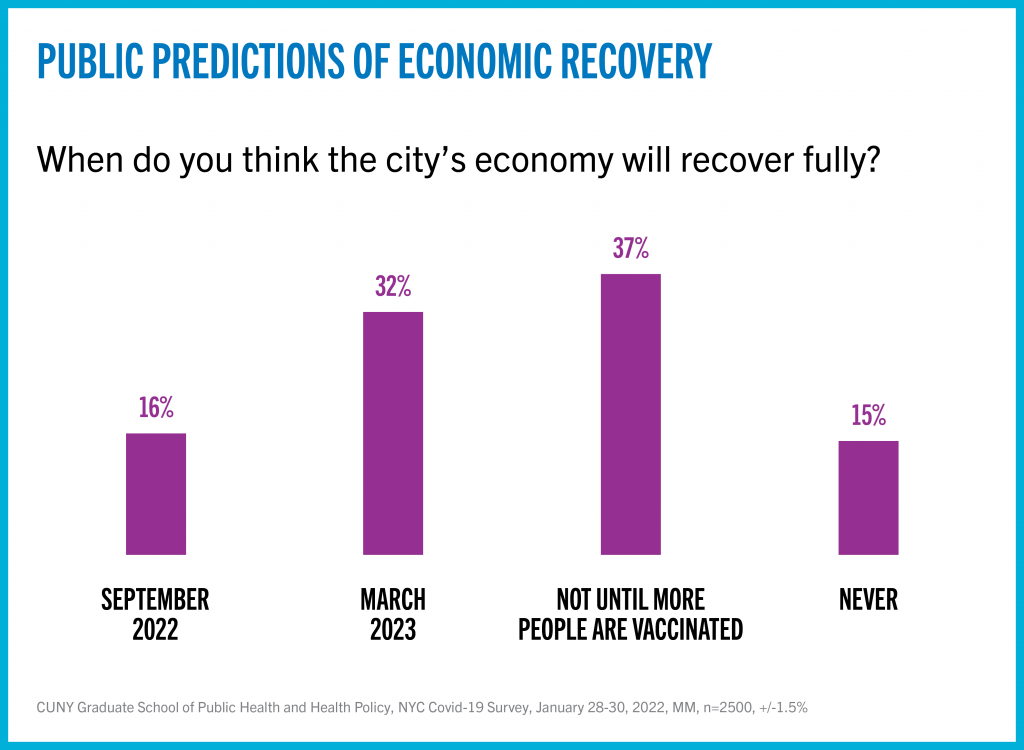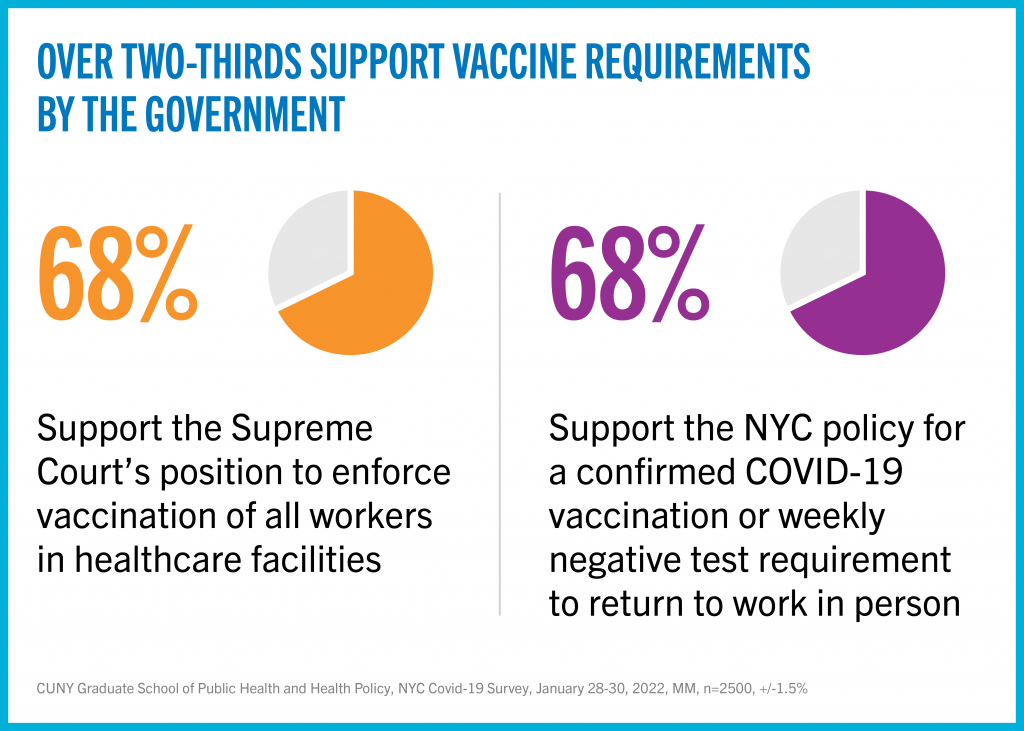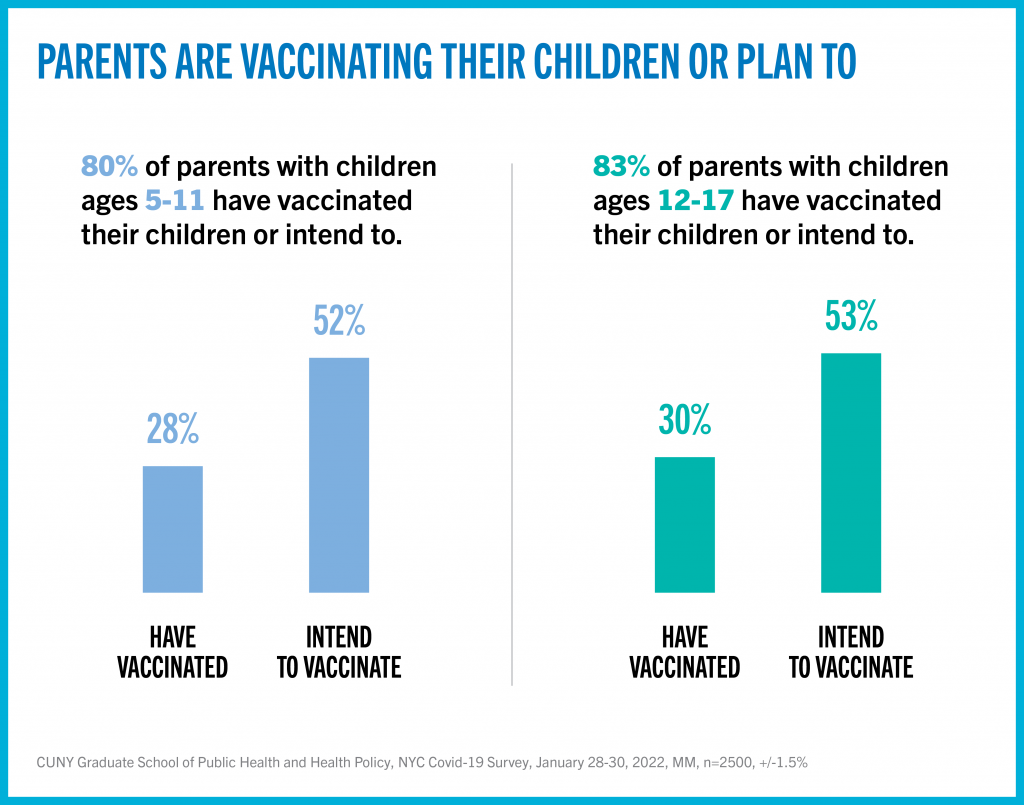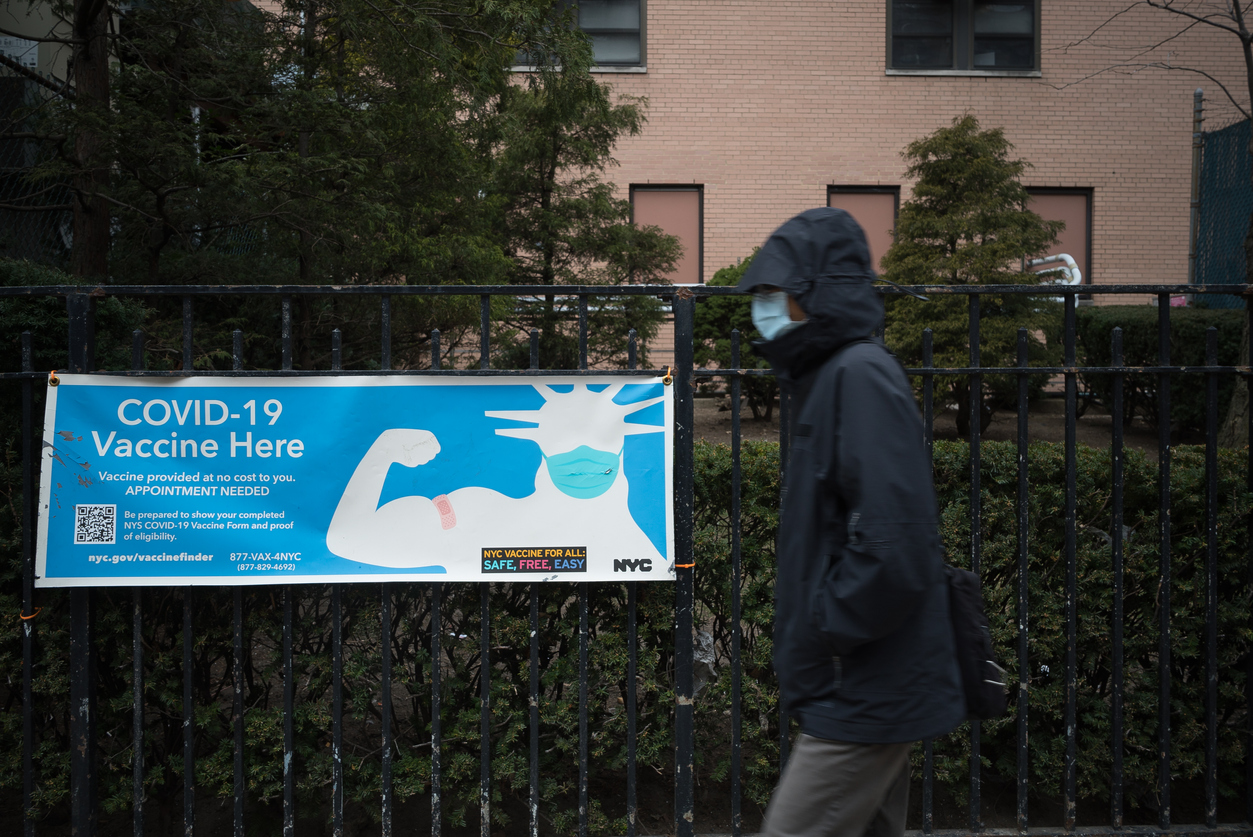54% are angry with unvaccinated adults and two-thirds support vaccine requirements for work, school, and play as our path forward toward full economic recovery
New York, NY, February 10 – New Yorkers entering their third year of COVID have bleak views of the near-term economy and a strong conviction that vaccines should be required for those seeking to participate in their city’s indoor activities (69%), to work in its service industries (66%) or schools (69%), and even to travel on airplanes (68%).
However, fewer than half (45%) believe restrictions will motivate people to get the vaccine, and 26% believe they will not. More than half of New Yorkers (54%) are angry with those who have not been vaccinated yet.
A new survey conducted in the last two weeks by the CUNY Graduate School of Public Health and Health Policy (CUNY SPH) of 2,500 New Yorkers confirms a largely vaccinated population that foresees an economic drag due to COVID and continued resistance among unvaccinated adults.
- One third of New Yorkers believe the economy will not recover fully in one year (32%), and another 37% say not until all New Yorkers are fully vaccinated. One in six believe the economy will never fully recover (15%).

The poll also indicated residual negative impacts on a significant segment of the population. Many are experiencing financial and mental health stress. More than a third of all respondents (34%) said they were worried their food would run out before they had money to buy more, up from 29% one year ago. One-in-five (18%) have felt down, depressed, or hopeless more than half of the days in the last two weeks, and an additional 24% have felt that way for several days over that time period.
“The survey demonstrates significant financial and mental health damage that may outlive the threat of the virus itself,” says Dr. Ayman El-Mohandes, Dean of CUNY SPH.
The impact of the pandemic was most pronounced in traditionally underserved communities and in certain boroughs of the city.
“Despite race-based inequities in communities of color, the mental health consequences are least pronounced in these communities,” El-Mohandes adds. “The communities most impacted are those showing stronger resilience.”
At the same time, survey results chart a path forward for a healthier city, grounded in an overall trust in the federal and state government (61%), a commitment to vaccines and testing, and a super-majority support for vaccine requirements for employment in schools and service industries, such as restaurants, bars, hair salons, and hospitality; and participation in indoor activities such as indoor dining, movie theaters, and gyms.
Over two-thirds support vaccine requirements by the government, including the Supreme Court’s position to enforce vaccination of all workers in healthcare facilities (68%) and the NYC policy for a confirmed COVID-19 vaccination or weekly negative test requirement to return to work in person (68%).

“Trust is fundamental for public health success and the support for vaccine acceptance,” says Dr. Scott Ratzan, Distinguished Lecturer at CUNY SPH. “It is encouraging to see that a majority of New Yorkers have confidence in the government response and are getting their booster doses and vaccinating their eligible children in this crucial phase of pandemic response.”
While the U.S. is lagging in vaccination rates and exceeding deaths among high-income countries, 81% of these New Yorkers are fully vaccinated and/or boosted, with an additional 9% having one dose. The prospect of COVID medications does not deter the intention to vaccinate or to boost for the majority (55%).
Similarly, parents are largely vaccinating their children or planning to: 80% of parents of children ages 5-11 have vaccinated their children (28%) or intend to vaccinate them (52%). 83% of parents of children ages 12-17 have vaccinated their children (30%) or intend to vaccinate them (53%).

“In a city that bore the lethal brunt of COVID-19’s first wave two years ago, New Yorkers remain resilient and resolute on the need for vaccines and masking,” says Dean El-Mohandes. “These findings portray their realistic view of the challenges and strategies needed to move forward in a nation that is still not adequately vaccinated.”
For details of respondents’ outlook on the economy; vaccination rates and requirements, and testing use and distribution, see our full report with comparison points from a survey fielded one year ago.
About CUNY SPH
The CUNY Graduate School of Public Health and Health Policy (CUNY SPH) is committed to promoting and sustaining healthier populations in New York City and around the world through excellence in education, research, and service in public health and by advocating for sound policy and practice to advance social justice and improve health outcomes for all.
Media contact:
Ariana Costakes
Communications Editorial Manager
ariana.costakes@sph.cuny.edu




